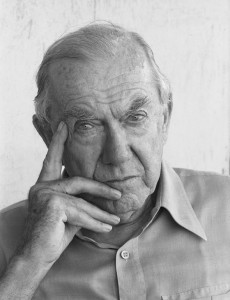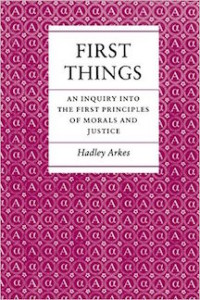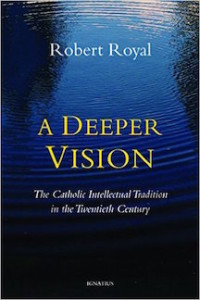In my book First Things, I drew, at one point, on the screenplay that Graham Greene wrote for the Third Man, a haunting film, set in black and white, against the ruin of Vienna after World War II. Harry Lime, an American, had been engaged in selling adulterated penicillin on the black market. He was sought by the military police. His friend, Rollo Martins, had been pressed by the police to help.
Martins arranges a meeting with Harry at an amusement park, and they are alone together in a cabin on the Ferris Wheel. As the wheel reaches its zenith, Martins asks, “Have you ever visited the children’s hospital? Have you ever seen any of your victims?”
“Look down there [Lime replies] Would you really feel any pity if one of those dots stopped moving – for ever. If I said you can have twenty thousand pounds for every dot that stops, would you really…tell me to keep my money…? Or would you calculate how many dots you could afford to spare.
This passage was woven into one chapter on abortion, to make this point: For that distance between the top of the Ferris Wheel and the ground, one could substitute the distance in time that separates the embryonic “dot” from the offspring that comes out of the womb. And almost as surely as one dot will turn into a visible child when the wheel turns full circle and the cabin returns to the ground, that embryonic “dot” will turn into a being that we will see, quite surely, as a child.
What brings Graham Greene back to mind is Robert Royal’s new book, grand and sweeping and magisterial, A Deeper Vision: The Catholic Intellectual Tradition in the Twentieth Century. The sweep reflects the breadth of his learning, but what may be striking, even to his friends, is that he carves out space for some rather fine-grained analyses of particular philosophers and theologians.

Apart from them, he also has an extended section on “The Catholic Literary Revival.” There he deals, with tutored eye, in picking out just the right passages in Newman, Chesterton, and Belloc. Greene finds his place there. In an account of remarkable compression, Royal deals with the complete body of Greene’s writings, catching the points that are most decisive about Greene as a writer and Catholic.
Greene was a convert, who would bear out Michael Novak’s line that this is a Church “of the sinners, by the sinners, for the sinners.” His conversion was inspired by the desire to marry a Catholic woman, but he would have two mistresses at once, would leave his wife without divorcing her, and conduct a long-term liaison with another Catholic woman.
His relation to the Church, in short, was troubled. And his political judgment at the end skewed, as he hoped for an alliance between the Church and Communists. As he clung in anger to the Church, his writings became more heretical. What came through, as Royal writes, is “a disturbing insight into the kind of obsessiveness and confusion, even in the face of the calm recognition of the truth, that often in fact accompany sin.”
The lethal temptations in his life may surface in an addition to his screenplay, when Lime offers a breezy farewell to his friend as they exit the Ferris Wheel: “In Italy, for thirty years under the Borgias they had warfare, terror, murder and bloodshed, but they produced Michelangelo, Leonardo da Vinci and the Renaissance. In Switzerland, they had brotherly love, they had five hundred years of democracy and peace – and what did that produce? The cuckoo clock.” High art, high risk; high genius expending itself at high speed at the edge of vice.
And yet, Greene had insights that continue to resonate with a Catholic sense of people straining in a fallen world. He had the keenest sense that the life he was leading with a frenetic intensity was deeply at odds with Catholic teaching. But he had also absorbed, with a surety seeming to run to his deepest fibers, that the Church had the truth on things that counted. That explains what is so riveting in the anguish running through his novels.
That anguish played out in the most penetrating way in my own favorite among them, The End of the Affair. In wartime England a married woman, Sarah, and her lover are in a building suddenly bombed. She doesn’t know if her lover survived. She pleads with God: She will believe if He will “let him be alive….Give him a chance. Let him have his happiness….I love him and I’ll do anything if you’ll make him alive….I’ll give him up for ever, only let him be alive with a chance.” After all, “People can love without seeing each other, can’t they, they love You all their lives without seeing You.” At that moment, Maurice, her lover, comes to the door: “I thought now the agony of being without him starts.”
Two years later she tells him in her diary, “I’m tired of being without you.” She tells God, “I’m not going to worry about you any more…whether you exist or whether you don’t exist, whether you gave Maurice a second chance….Perhaps this is the second chance I asked for him. I’m going to make him happy, that’s my second vow, God, and stop me if you can.”
Her lover reads this after her death. She had not been able to leave the husband who needed her. Both lovers raged at God, and in raging, confirmed that He exists. She realizes that He couldn’t be merely “vapour.” For she cannot say to that figure on the cross, “I hate you, but can one hate a vapour?” A vapour was not nailed to that cross – that was not the God complicating their lives, with loves so intensely felt, in body and touch. They knew – because Greene painfully knew – that the third presence for them was a God with a body as real as their own.
Click the cover images to order the books mentioned in this column through The Catholic Thing store:

















